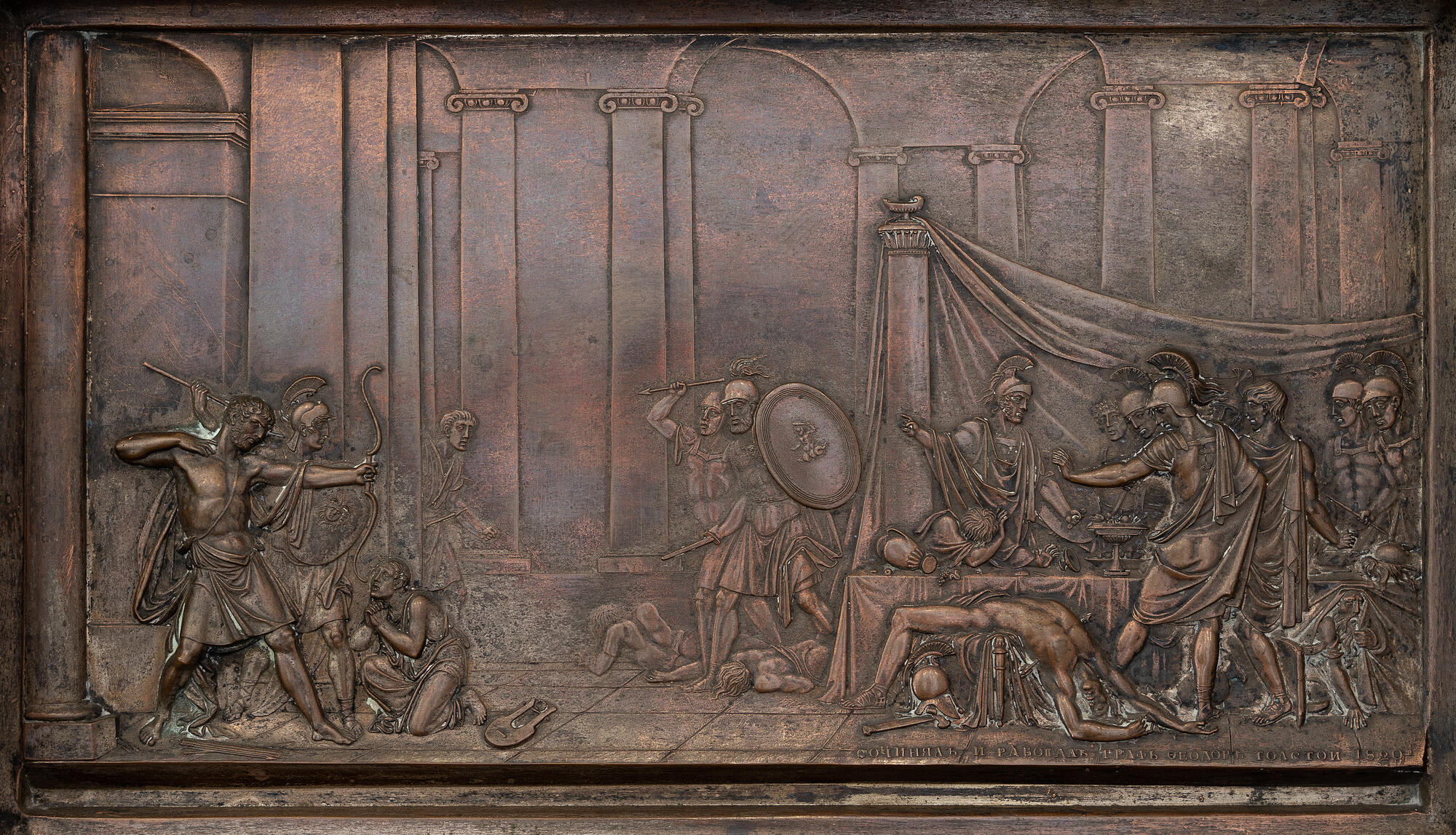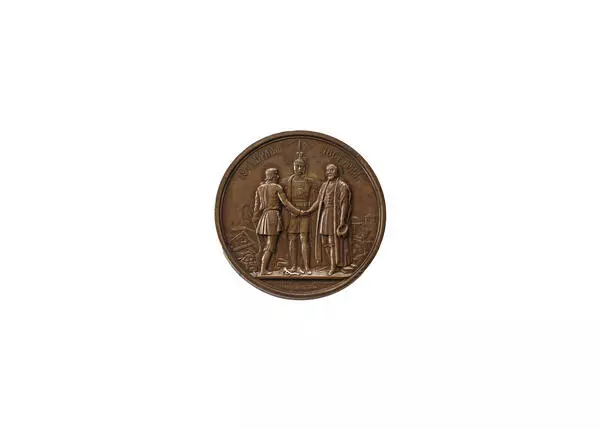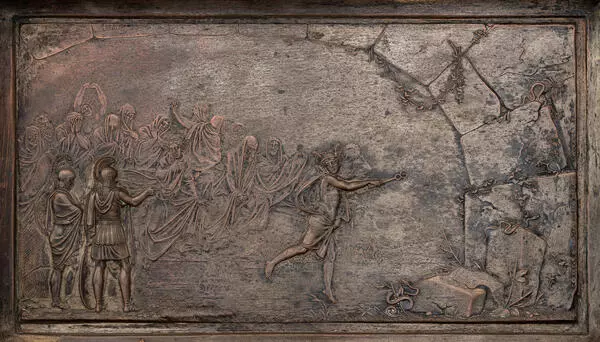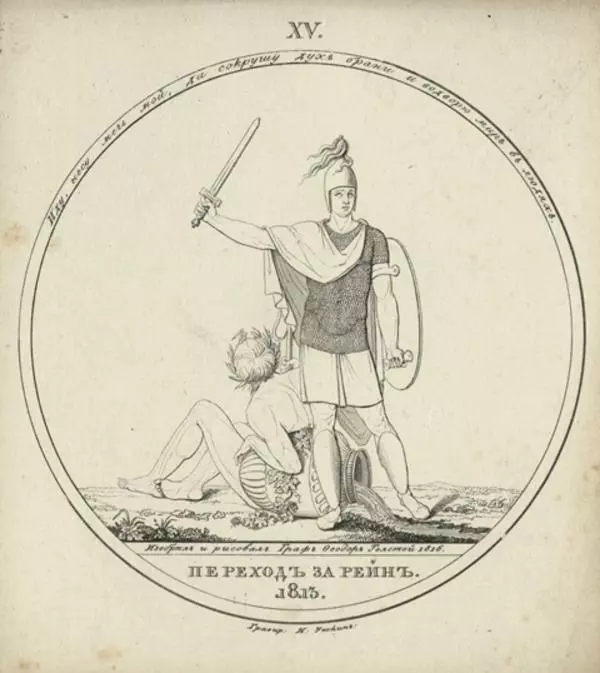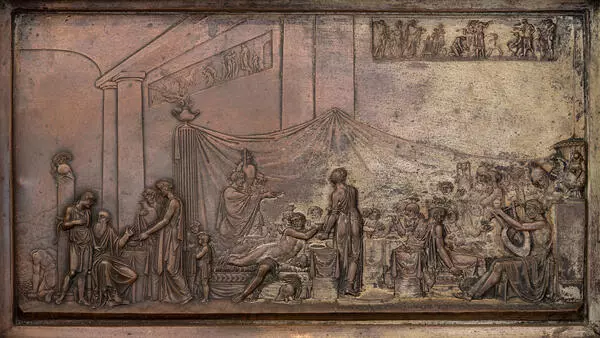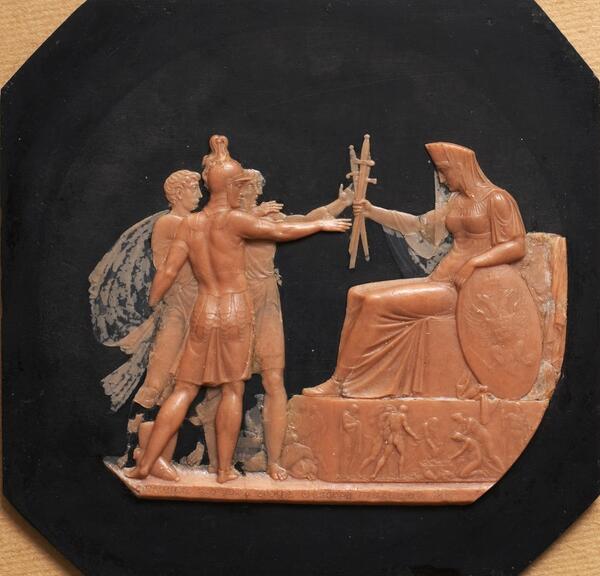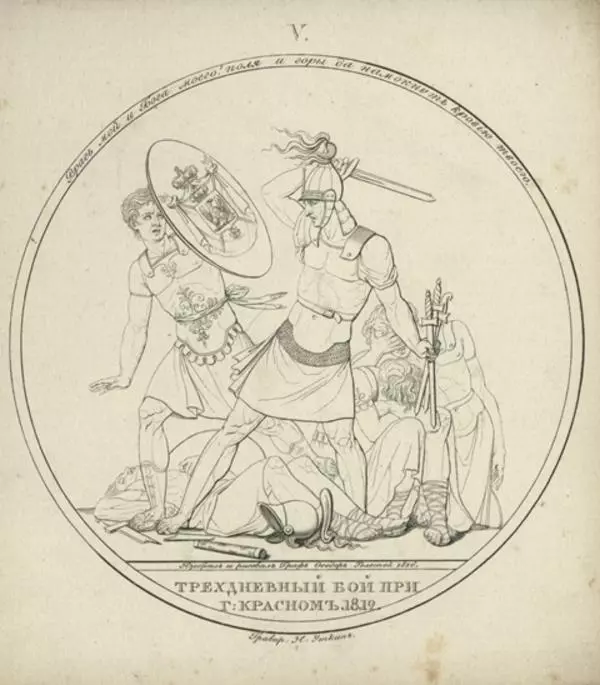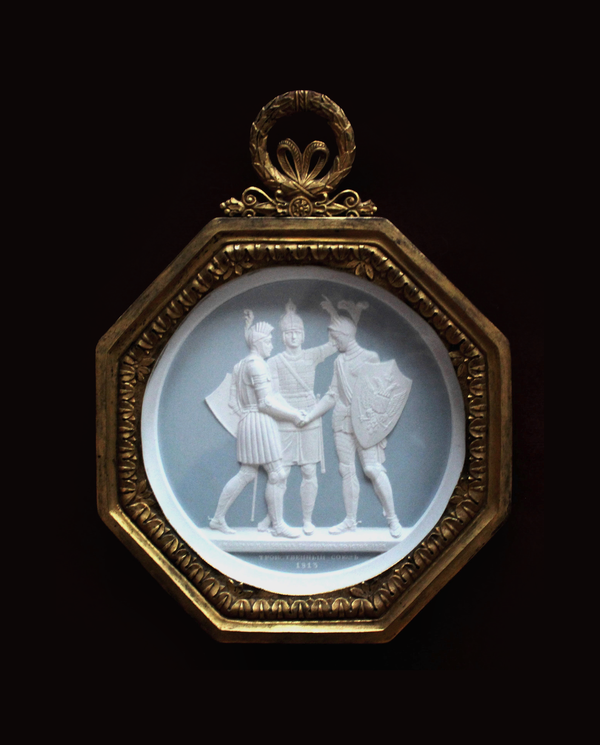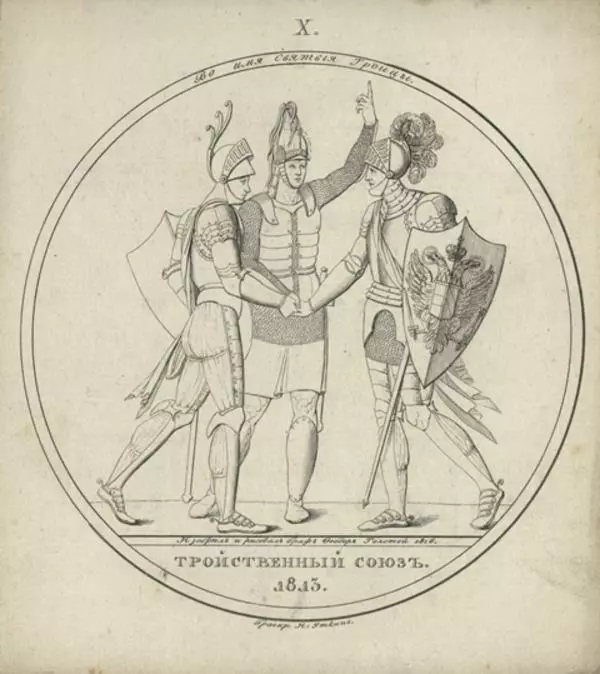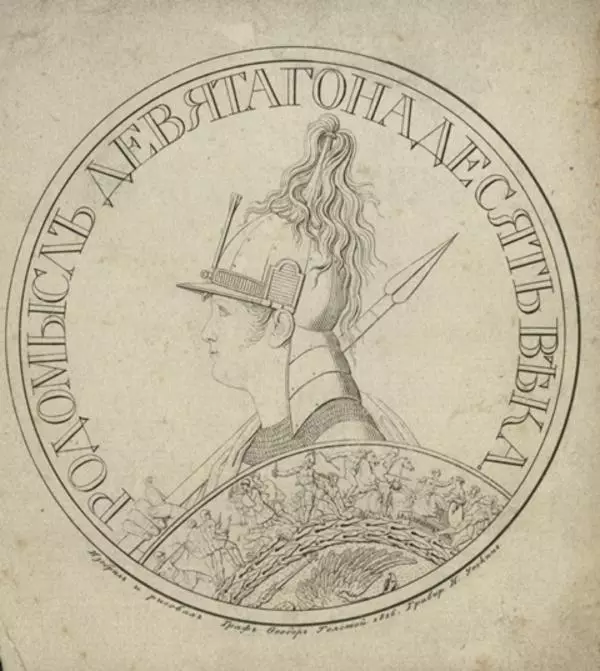The tragic bas-relief “Odysseus Slaughtering Penelope’s Suitors” shows Odysseus’ massacre of Penelope’s suitors.
After his long and tiring wanderings, Odysseus returned home to Ithaca. He appeared as a beggar, concealing his identity from everyone except his son Telemachus. At his home, the suitors were having a feast. When they saw the beggar, they began mocking and insulting him. Outraged, Odysseus decided to take cruel revenge on the insolent and arrogant suitors.
At Athena’s suggestion, Penelope decided to organize an archery contest, saying that she would marry the winner. The task was to use Odysseus’ bow (that once belonged to Heracles) to shoot an arrow through 12 ax heads.
None of the suitors could even string the bow. Then Telemachus persuaded Penelope to go back to her chambers, after which he gave the bow to his disguised father. Odysseus strung the bow and shot the arrow, which passed through all 12 ax heads.
After that, Odysseus revealed his real name to the suitors and together with Telemachus they killed all of them.
The right side of the bas-relief shows the horrified suitors, and on the left is the energetic and strong figure of Odysseus, drawing his bow with Telemachus by his side. Odysseus and his son are perceived as one monolithic group.
Antinous is on the ground, pierced in the chest by Odysseus’ arrow. Using his deep knowledge of human anatomy, Tolstoy masterfully and accurately conveyed the outlines of Antinous’ naked body.
The suitors’ group is in disarray and is split into separate parts. The composition is asymmetrical yet balanced by the depiction of Odysseus’ group in the foreground, the suitors’ group at the table in the middle ground and the group of the armed suitors in the background.
Following Telemachus’ request, Odysseus spared the singer Phemius, who performed for the suitors against his will. Odysseus also spared a manservant named Medon, who revealed the truth to Penelope and did not harm Odysseus. Tolstoy managed to show him hiding under the table without breaking the rules of composition. In Homer’s poem, Medon hid by covering himself up with a heifer’s hide.
